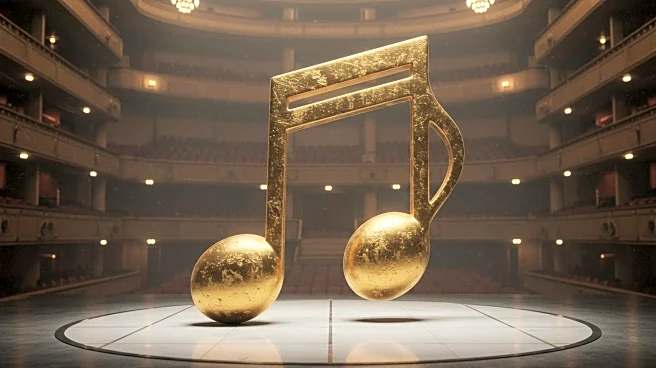What is the story about?
What's Happening?
Paul McCartney's interest in avant-garde music is highlighted by his attendance at a production of Michael Tippett's last opera, New Year. This opera is notable for its incorporation of diverse musical elements such as rap, reggae, and electronic space music, alongside reduced orchestral strings and the inclusion of saxophones and percussion. McCartney's fascination with the opera led him to request a meeting with Tippett, which was arranged and resulted in a positive interaction between the two. This event underscores McCartney's ongoing exploration of avant-garde influences, which have historically impacted the Beatles' music, as noted in his reflections on the band's debt to composers like John Cage.
Why It's Important?
McCartney's engagement with avant-garde music highlights the broader cultural exchange between popular music and classical avant-garde traditions. This interaction enriches the musical landscape by fostering innovation and cross-genre collaborations. For the music industry, such explorations can lead to new creative directions and inspire artists to incorporate unconventional elements into mainstream music. McCartney's interest also reflects the enduring influence of avant-garde composers on popular music, potentially encouraging other artists to explore similar paths and expand their musical horizons.
What's Next?
While specific future actions by McCartney are not detailed, his continued interest in avant-garde music suggests potential collaborations or projects that may further integrate these influences into his work. The music industry may see increased interest in avant-garde elements, prompting composers and artists to explore new creative partnerships. Fans and critics alike may anticipate new releases or performances that reflect McCartney's avant-garde inspirations, potentially leading to a broader acceptance and appreciation of experimental music within popular culture.
Beyond the Headlines
McCartney's engagement with avant-garde music raises questions about the evolving relationship between popular and classical music genres. It challenges traditional boundaries and encourages a reevaluation of what constitutes mainstream music. This development may also influence music education, prompting institutions to incorporate avant-garde studies into their curricula, thereby nurturing future generations of musicians who are open to experimental influences.

















